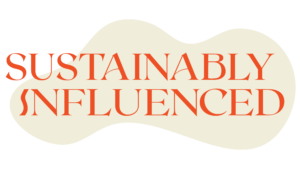7 Books To Read Now To Help You Be A More Conscious Consumer
Overconsumption is one of the biggest environmental problems, with nearly 20 percent of the world’s population being responsible for the consumption of 80 percent of natural resources. It’s enough to give anyone eco anxiety, but if reading more books was your New Year’s resolution and you also want to learn how to consciously consume at the same time; these are the books for you!
How To Break Up With Fast Fashion – Lauren Bravo £9.99 Blackwell’s
If you’re looking for an overview of what fast fashion can do to the planet and how to give it up, Lauren Bravo is your girl. Although Bravo is a journalist, her language in this book is non-judgmental and witty, making it the perfect guide for those who love fashion and are aware of industry, but don’t know how to start. Bravo uses fast fashion as a metaphor for a toxic relationship- one we know we should cut ties from, even though it may be hard because of our love for being fashionable and buying clothes. Bravo’s book remains informative whilst also being, at times, funny and relatable, making a great gateway for people wanting to cut their fast fashion consumption.
Consumed – Aja Barber £9.99 Blackwell’s
Aja Barber’s book Consumed presents us with the problems of consumerism and fast fashion while also exploring their colonist roots; and delves into intersectionality which others often forget. In the first half of her book, labelled ‘learning’, Barber simply educates the reader on colonialism and consumerism with a particular emphasis on the fashion industry. The second half of her book, Barber encourages the reader to look at why they consume the way they do, a kind of ‘unlearning’, as she calls it. What is most striking about Consumed is the fact that Barber doesn’t shy away from making the reader confront their uncomfortable relationship with fast fashion.
Re:Fashion Wardrobe – Portia Lawrie £17.99 Blackwell’s
If you’ve read the previous two books and know that extending the lives of clothes is the most important step to living sustainably and you’re someone who has a creative flair and wants to learn ways to change up or transform the clothes you already have, then Re:Fashion Wardrobe can help you help you do just that. It offers step-by-step guides on how to make a new piece of clothing out of old, alongside pictures so you know exactly what it should look like. Even if you’re new to sewing and crafts, most of the projects are easy and all of them help keep your clothes away from landfill.
The Day the World Stops Shopping – J.B MacKinnon £9.99 Waterstone’s
MacKinnon offers a thought experiment about what the world might look like if we reduced our consumption just 25%. Whilst others look at what you can do on a personal level to help the environment, MacKinnon takes a global understanding instead. Although MacKinnon is arguing for a society that doesn’t evolve around consumerism, it can offer as a thought experiment for those wanting to consume more consciously!
Upcyclist – Antonia Edwards £32.50 Waterstone’s
Edwards wrote this book is for people who are get inspired by the creative work of others. Separated chapters into materials, this book aims to showcase the innovative things you can do with everyday items that already exist. It’s less of a step-by-step, however, and more of an artistic look at how design-conscious consumers can rework old items into lavish new. Even if you don’t consider yourself very DIY, this book is still worth having on your shelf as it serves as an inspirational reminder to choose upcycled and reworked over landfill.
How To Give Up Plastic- Will McCallum £3.60 World Of Books
As Head of Oceans at Greenpeace UK, McCallum knows just what the dreaded plastic can do to our oceans. His book does exactly what the title says- gives the reader a simple guide on how to consciously reduce our plastic consumption. The guidance is useful and accessible and is packed full of informative advice despite being such a small book.
How Bad Are Bananas? – Mike Berners-Lee
Although published over ten years ago, Berners-Lee’s words are still important, if not so even more now people are moving towards a carbon-footprint focused society. If reducing your carbon footprint is something you’re interested in doing as a way of becoming a conscious consumer, this is the book to start with as it lays out the environmental impact of items we don’t even think about. Although a book listing the carbon footprint of things may not seem like a very entertaining read, Berner-Lee makes sure to add some humour to get you through those facts that may shock you!
Whilst becoming a conscious consumer is a process of making small changes; hopefully these books will help educate and guide you into making more conscious decisions about buying less and using what you have more.







